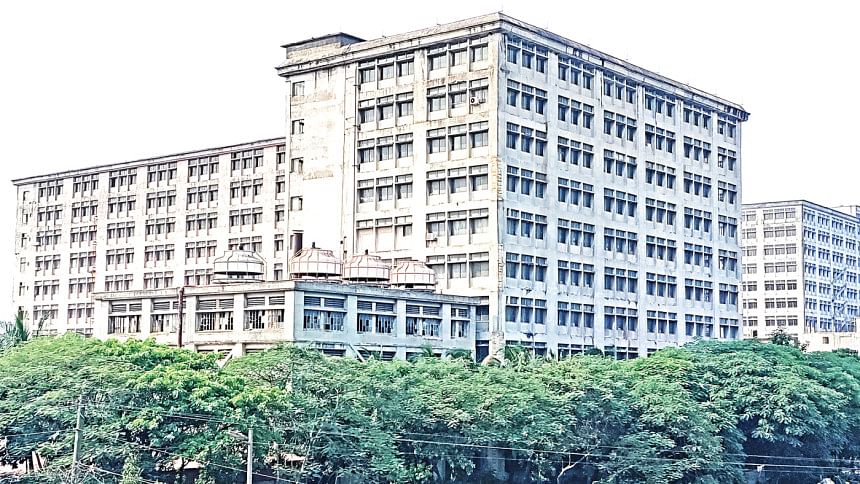Opex & Sinha Textile shuts Narayanganj operations

Opex & Sinha Textile Group, once one of Asia's largest garment and textile makers, has decided to close big operations at Kanchpur, Narayanganj following a reduction of work orders and financial losses.
The group's chairman, Anisur Rahman Sinha, decided to bring the decision into effect from October 19, said Baniz Ali, acting director (admin) of the group, in a notice issued on October 18.
Sinha had been trying to run the factories even after incurring losses since 2012. He even sold land and other properties to pay workers' salaries so that production continued smoothly, it said.
But he gave up due to financial losses, a reduction of work orders in the severe fallout of the Covid-19, workers' indiscipline and lower efficiency, read the notice hung on the factory gate.
The notice also said all arrears would be paid following the country's labour laws and the factory management was preparing to pay workers' dues in consultation with the labour ministry and the Department of Inspection for Factories and Establishments.
Copies of the notice were also sent to the Bangladesh Garment Manufacturers and Exporters Association (BGMEA) and Bangladesh Knitwear Manufacturers and Exporters Association (BKMEA).
Sinha could not be reached for a comment by the time this report was filed.
The group was set up in 1984 and gradually expanded on 43 acres of land in Kanchpur, some 20 kilometres away from Dhaka.
Mohammad Hatem, executive president of the BKMEA, said Sinha had contacted him a month ago seeking a solution.
There had been regular labour unrest in the factories for many years and the fallout of the Covid-19 ushered the closure as the management was struggling to make any profit, he said.
The group had been paying workers some additional benefits like attendance and performance bonuses and light meal allowance but could not continue providing all during the pandemic for incurring losses, he said.
This led to workers starting protests and abstaining from work at a time when all efforts should have been on recovery from the pandemic's fallout, he added.
The management will need Tk 45 crore to Tk 50 crore to complete paying workers and staff, said Hatem.
The Kanchpur factories had as many as 45,000 workers even a few years ago but it was down to 12,000 when the closure was announced, he said.
"This closure by such a big group is very painful for our garment industry," said Hatem, adding that it was really difficult for the group chairman to manage such a large number of workers.
Faruque Hassan, president of the BGMEA, said it was very painful to witness one of the leading and pioneer companies in the country's garment sector shut down factories.
He said he had received a letter from Sinha a few days ago, informing him of the shutdown for being unable to run the units.
However, Hassan said he was already aware of the group's struggle. "Multiple factors are responsible for the shutdown of such old and good factories," he said.
They include a gas crisis, regular air shipments due to production delays, work order cancellations during the pandemic's peak last year, payment delays by international retailers and brands and regular labour unrest and disturbance in production, he said.
There was no shortage of work orders, on the contrary, the country was overflowing with it, said Hassan.
Hassan also urged his peers to give thought whenever working on expansion, capacity building, management, particularly of labour; and healthy industrial relations with workers' platform for smooth running of factories at this critical time.
Nazma Akter, president of Sommilito Garments Sramik Federation, a garment workers' rights group, said the main problem was with the group's management over the last couple of years.
"Workers were not paid regularly and they protested every month for realising their arrears," she said.
"Since the workers were deprived, they took to the streets and production was affected. The workers should not be blamed as it was a managerial problem," she said.

 For all latest news, follow The Daily Star's Google News channel.
For all latest news, follow The Daily Star's Google News channel. 



Comments